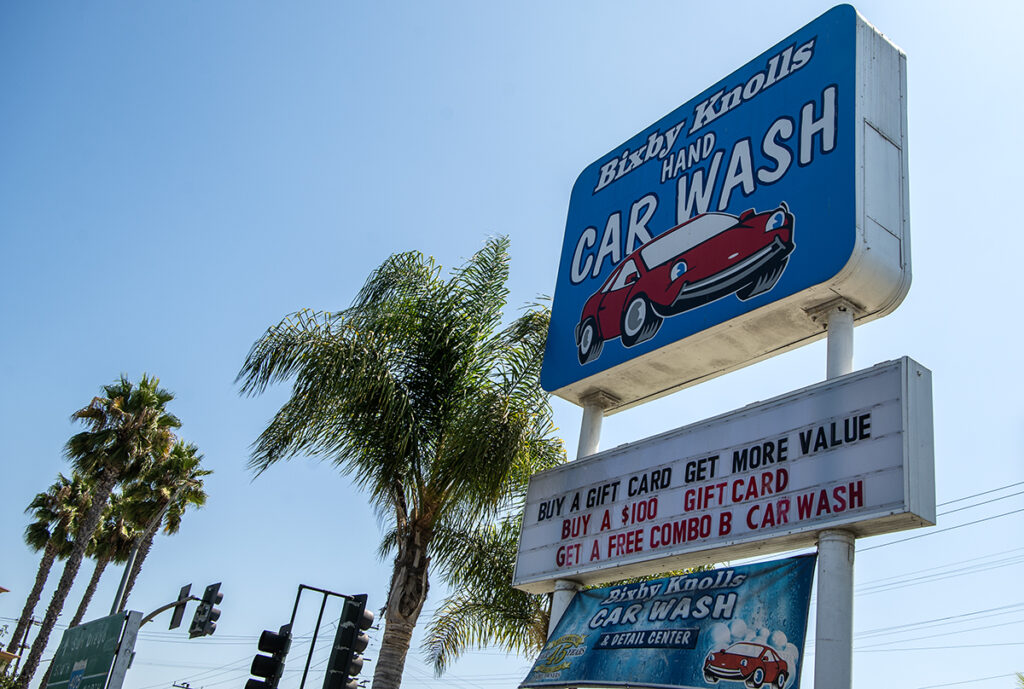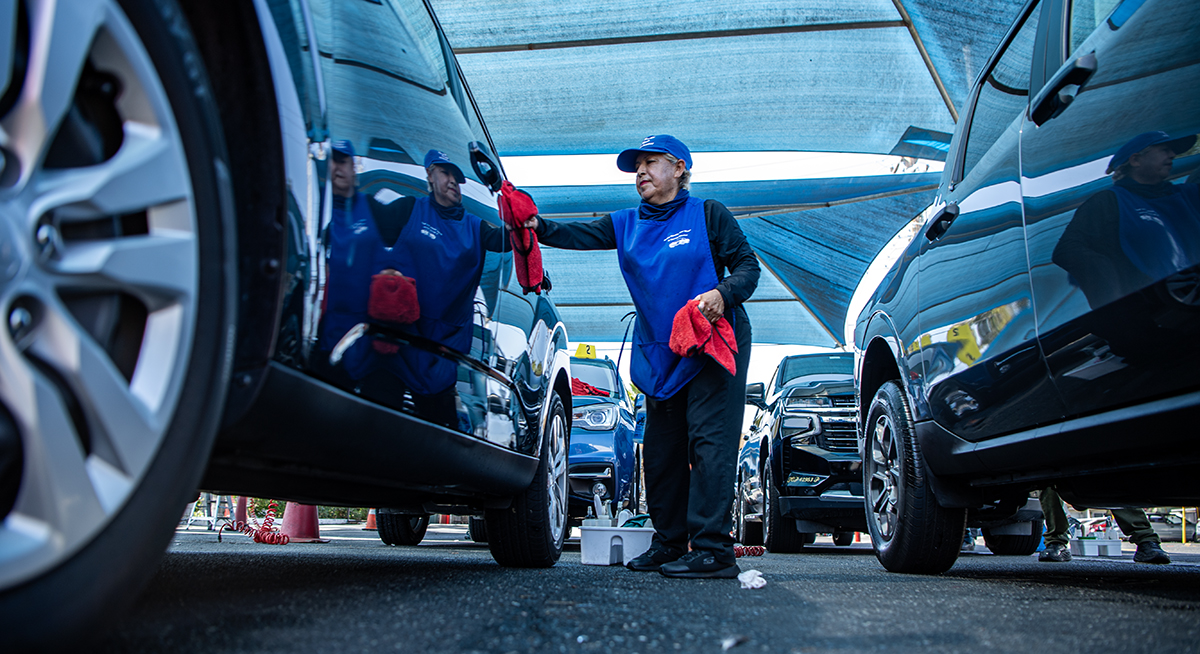While he’s read about it online, seen clips on television and on social media, nothing could have prepared Ramón Paz for the immigration raid Saturday at the car wash he’s overseen for nearly 50 years.
In that moment, he remembers feeling helpless and “destroyed.” “You feel like you can’t do anything,” he said.
Days after an immigration raid swept up seven people — four women and three men — from the Bixby Knolls Car Wash on Wardlow and Atlantic, little is known as to their fate. The Department of Homeland Security did not respond to a request for comment.
Paz said he believed at least five of the detained workers had some form of legal status, but he witnessed several agents take immigration papers supplied by the workers and either “throw them away,” call them fake or confiscate them.
Among those detained were one person from Honduras, three from El Salvador, and three from Mexico, according to Paz. Most had children and several had worked at the carwash for years, he said.
Mayor Rex Richardson, in a statement, called the raid and others like it “cruel, discriminatory, and unacceptable.”
“ICE has NO PLACE in our city,” he wrote.
It’s unclear if the city’s Long Beach Justice Fund, which is meant to offer deportation defense services, is lending legal representation to the families. Several families have organized fundraisers, including Paz’s family, to pay for attorney fees.
Friends and family say the workers have been processed in Santa Ana and at least two have been transferred to the ICE Processing Center in Adelanto. One woman, according to a GoFundMe page, is being held at the detention center in Los Angeles. They are among the more than 58,000 migrants ICE has detained nationwide since January.
Witnesses said the Saturday morning raid lasted about thirty minutes; as authorities drove up in several vehicles, they blockaded the entrances and approached workers. One worker, detailing a customer’s truck, hopped into the driver’s seat and drove to a nearby CVS just before authorities had closed off the exit, according to Paz.
Afterward, workers finished the few remaining cars that needed to be washed before the site closed for the day, some seen sobbing as they worked.
The weekend raid in Long Beach comes one week after the U.S. Supreme Court lifted a federal judge’s order prohibiting federal agents from making roving immigration-related stops that critics say violate the Fourth Amendment as “blatant racial profiling.”

While the order is temporary and expected to go before a federal appeals court, agents are allowed to resume patrols in Los Angeles and seven other California counties.
The decision is likely to strike more fear into the region’s immigrant communities, regardless of status, and inflame neighborhoods already on edge by months of unrelenting sweeps in a state at the core of the debate over immigration.
CLEAN Carwash Worker Center, a local labor advocacy nonprofit, estimates that 266 people — mostly workers but also some customers — have been detained in sweeps at car washes in Los Angeles and Orange counties since June.
Andrea Gonzalez with CLEAN said there has been at least one immigration raid in Los Angeles County every day since Thursday.
“If they’re doing this now, I can only imagine how it’s going to get,” Gonzalez said.
Families were reportedly connected with ÓRALE, an immigrant-rights nonprofit, which then referred families Monday to legal providers.
Similar sweeps in Long Beach have also been carried out at Coast Hand Car Wash & Detail Center — near the Long Beach VA Medical Center — and Andres Car Wash, a business a few minutes up the road.
Closing for the weekend, Paz said the car wash reopened Monday. But most of the employees have either quit or simply didn’t show up. With only eight workers — he normally staffs 20 to 22 on a weekday — Paz watched customers drive off, impatient over having to wait too long in line.
“They have families, they have kids, they pay taxes, they pay everything, but they don’t care,” Paz said of the workers. “They don’t want to come back.”

